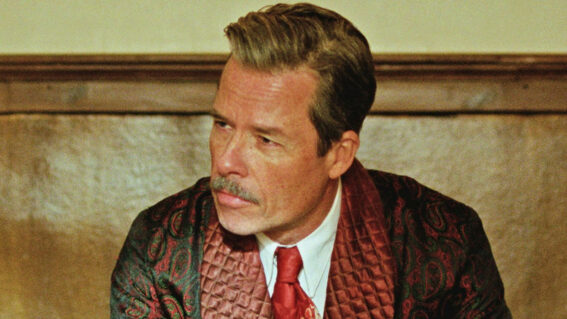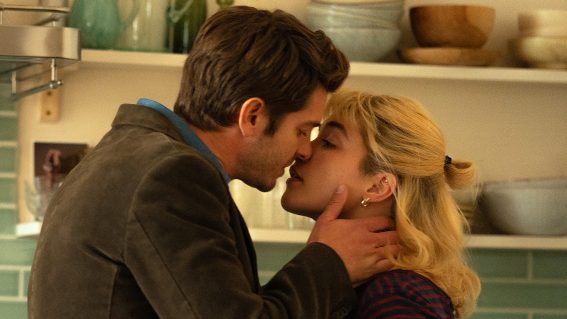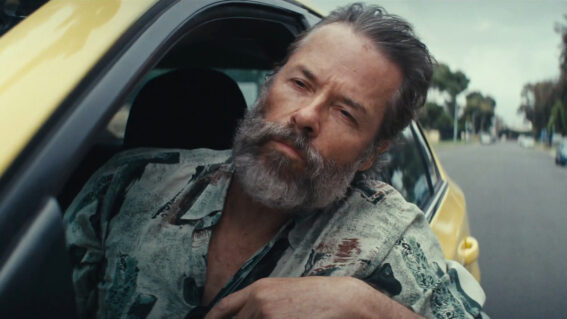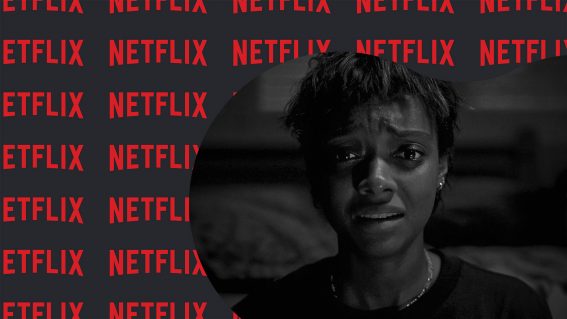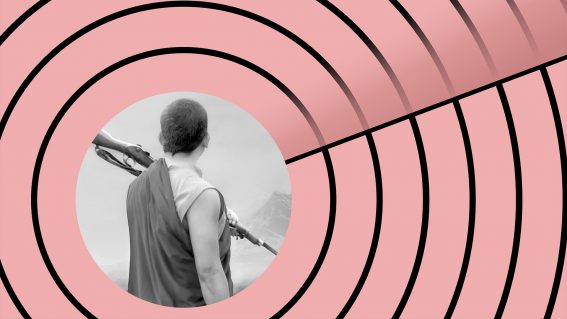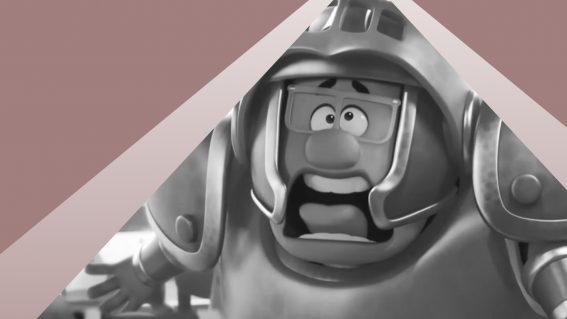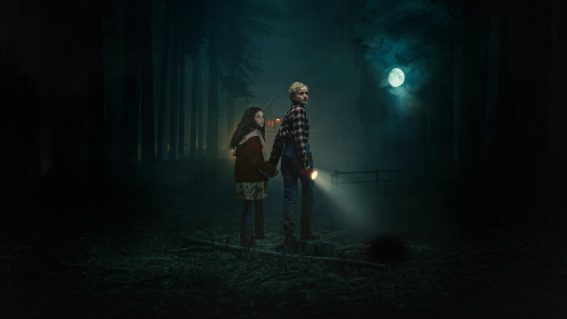Costume dramas like Bridgerton also show there’s a sanctuary to be found in fantasy
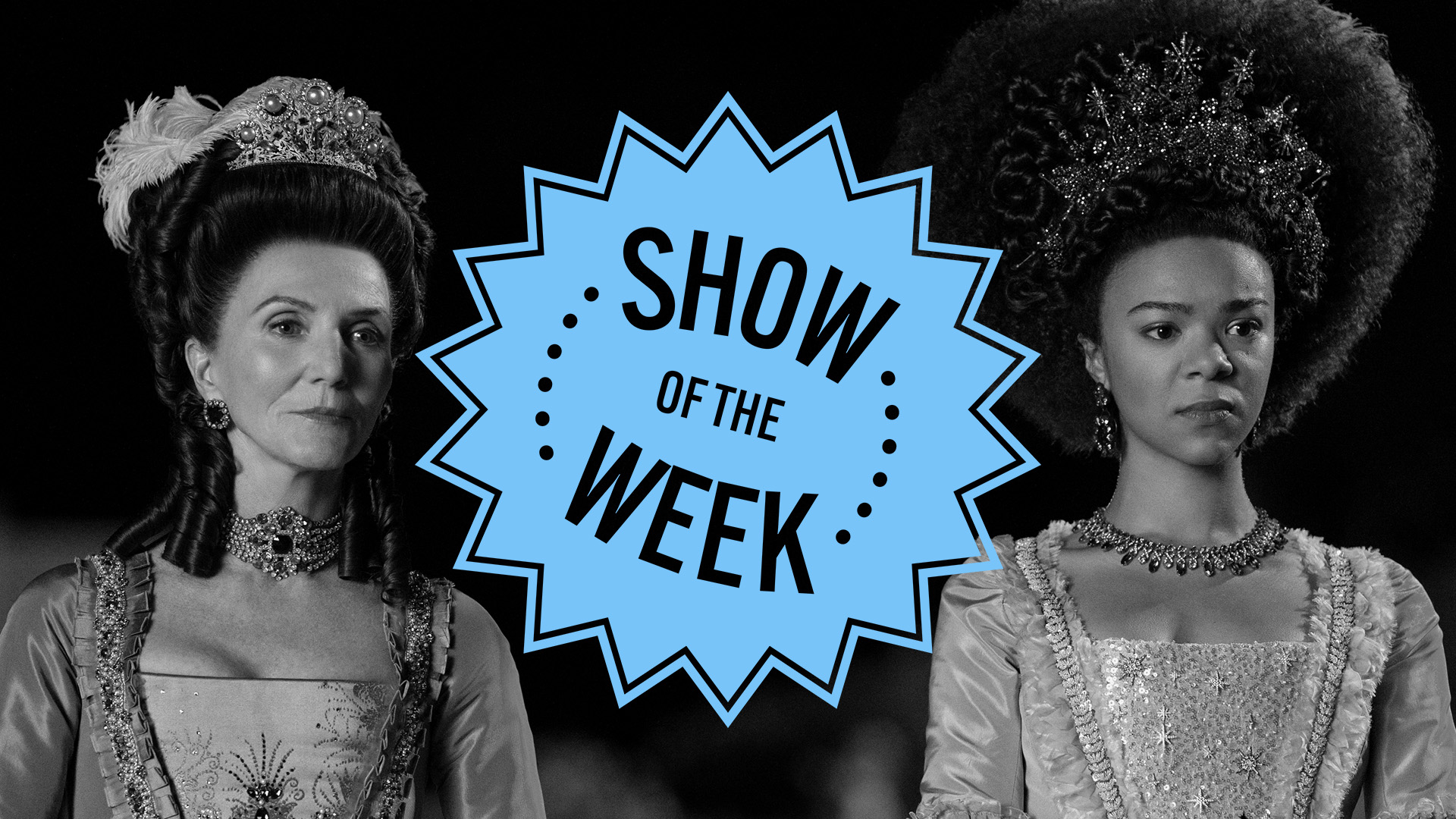
We’re all drowning in content—so it’s time to highlight the best. In her column published every Friday, critic Clarisse Loughrey recommends a new show to watch. This week: prequel series Queen Charlotte: A Bridgerton Story.
Only last week, I was writing about how there’s a sanctuary to be found in fantasy. I mentioned Sweet Tooth and The Last of Us, and how they’ve helped us confront our own fears about the pandemic. I’ve previously written about Star Wars, specifically Andor, and the ways the franchise asks us to question both our ability and our duty to fight back against those who oppress us. What I’ve never really included in these discussions, though they deserve their place, is the role of fantasy fulfilment costume dramas like Netfix’s Bridgerton.
There are a number of reasons why the fuss around the series’ (lack of) historical accuracy has always seemed somewhat pointless. No one’s ever claimed that these Regency-era romances draw from actual history—no one in them ever seems particularly concerned with child mortality, the state of the harvests, or the Napoleonic Wars. They’re modern interpolations, instead, of the fantasies dreamt up in that era, of the delicate social comedies Jane Austen penned so that her audience could find some light relief from their own burdens. They were a chance to laugh at how rigorously defined their lives were, and dream of something purer and more romantic. So, in that case, isn’t Shonda Rhimes’s commitment to a Bridgerton full of empowered, headstrong women really just a continuation of Austen’s own ambitions?
But there was always a line, back from season one, that troubled critics. “We were two separate societies divided by colour until a king fell in love with one of us,” social powerbroker Lady Agatha Danbury (Adjoh Andoa) explains to the uninitiated, hinting that Bridgerton’s racially diverse court of aristocrats wasn’t always the status quo. It was the first time race was directly addressed in the series. And also, really, one of the last. Until now—and Queen Charlotte: A Bridgerton Story, a prequel season that examines the royal’s younger years and attempts to sketch out how this social unity came to be.
Queen Charlotte, too, treks forward along the show’s current timeline, as the titular monarch (Golda Rosheuvel) finds herself face-to-face with her own future—the Princess Royal has died in childbirth and with her the only concrete hope of an heir. Charlotte may have raised 13 children, but none of them seems to have taken their royal duties (Procreate! Procreate! And procreate some more!) very seriously. The loss forces the queen to consider her own sacrifices and her own definitions of love. And so we flash back to her younger years (where she’s played by India Amarteifio), as she journeys from her German homeland to England in order to become a royal bride to a man she’s never met: King George III (Corey Mylchreest).
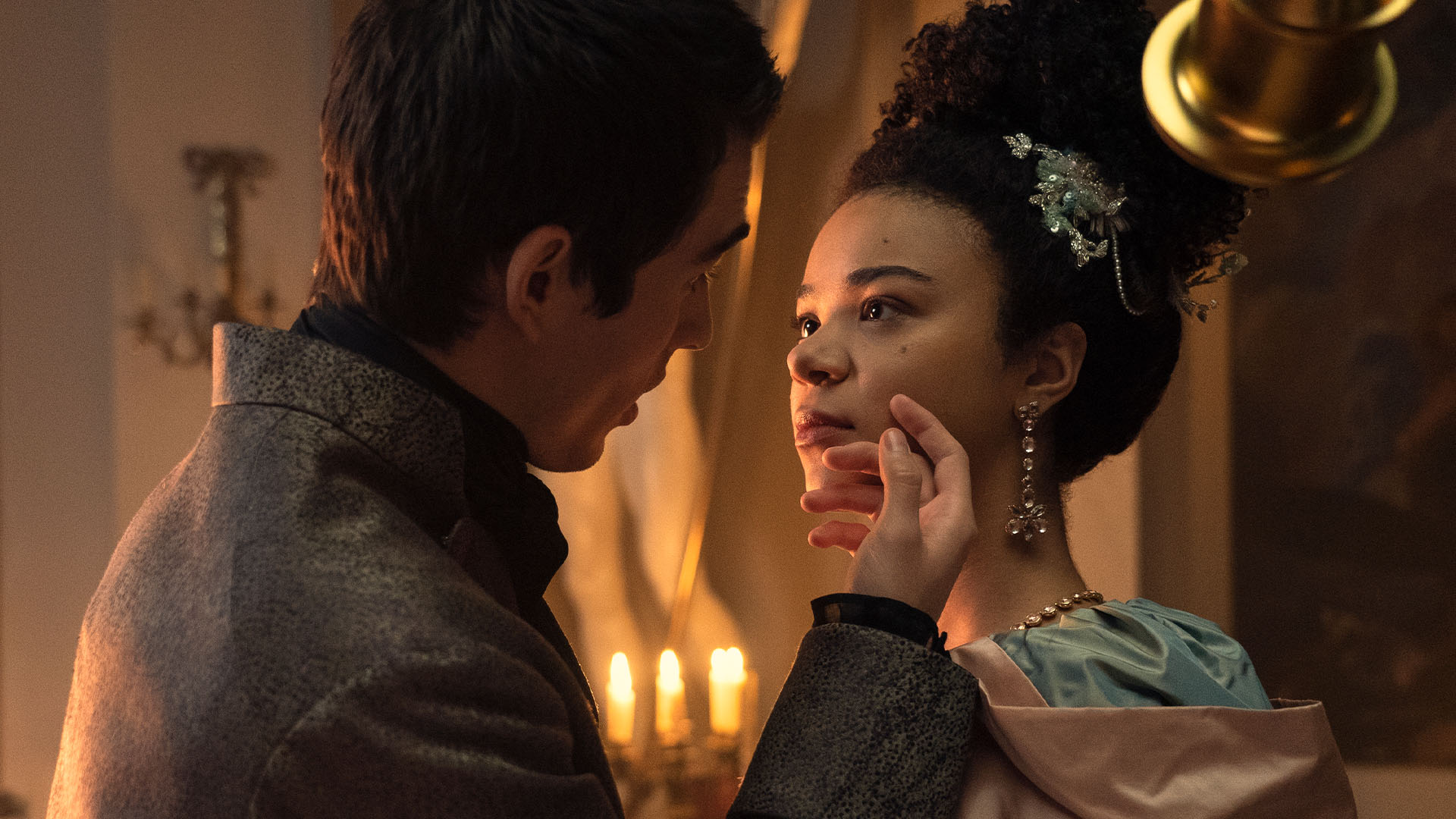
George, because this is Bridgerton, looks like an Armani model. So the job of procreation isn’t particularly laborious for either of them. But the couple still faces a multitude of hurdles. The first is the onset of George’s infamous “madness”—in reality, what’s thought to be porphyria, a rare haemoglobin disorder that can cause confusion and hallucinations, alongside a host of painful physical symptoms that the series pointedly ignores lest there’s even a hint of unsexiness in the air. The worst he has to deal with, in this regard, is the occasional tremor.
There’s already a lot to be said here about the show’s tackling of mental illness, which is somewhat admirable in positioning George as a traditional romantic lead, sympathetically shown, without any demonisation of his symptoms. At the exact same time, it’s a little disheartening to hear him tell Charlotte that he’s “half of a husband”—and, instead of swiftly vetoing the idea that such a disorder would make anyone “lesser”, she simply agrees and states “we will make it the very best half”.
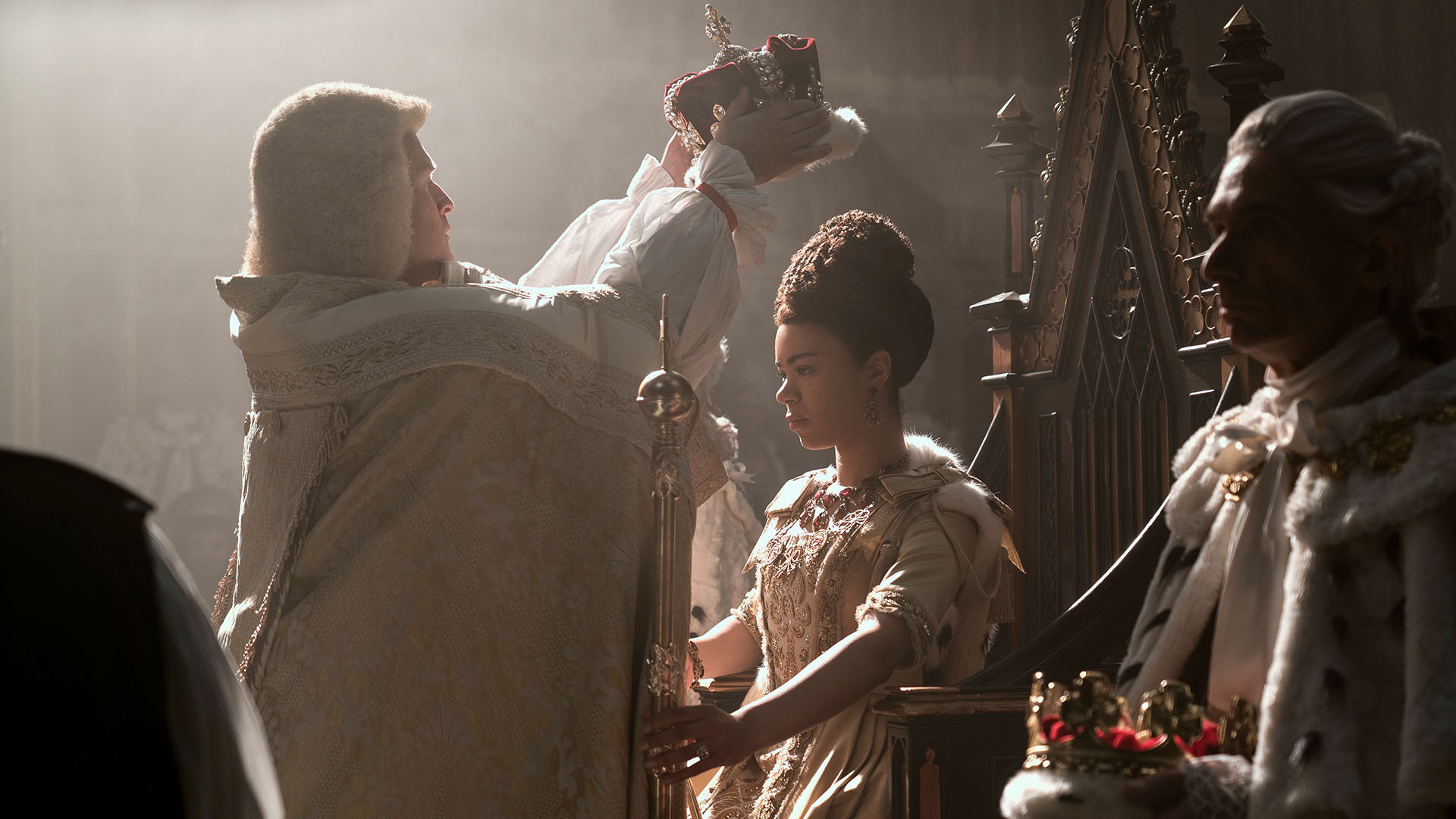
But that’s the deal we make with shows like Bridgerton, isn’t it? Rhimes’s intentions here are unimpeachable, for the most part, but her pact to keep things light and frothy has obliterated any opportunity to create a fantasy that can meaningfully reflect reality. That’s true of how George is depicted. And it’s true, as well, of how the issue of race comes across.
In Queen Charlotte, George’s mother, Princess Augusta (Michelle Fairley), seems unaware of her new daughter-in-law’s ethnicity until she’s on the doorstep of Buckingham House. Her reaction is to devise a plan she terms “The Great Experiment”, in order to make the wedding more palpable to a racist—but apparently not that racist—white Britain. She bestows titles on wealthy Black members of society, among them a young Lady Danbury (Arsema Thomas). The white aristocrats grumble. Her promises prove hollow since none of the titles come with land or finances to allow these new lords and ladies to live as they’re expected to.
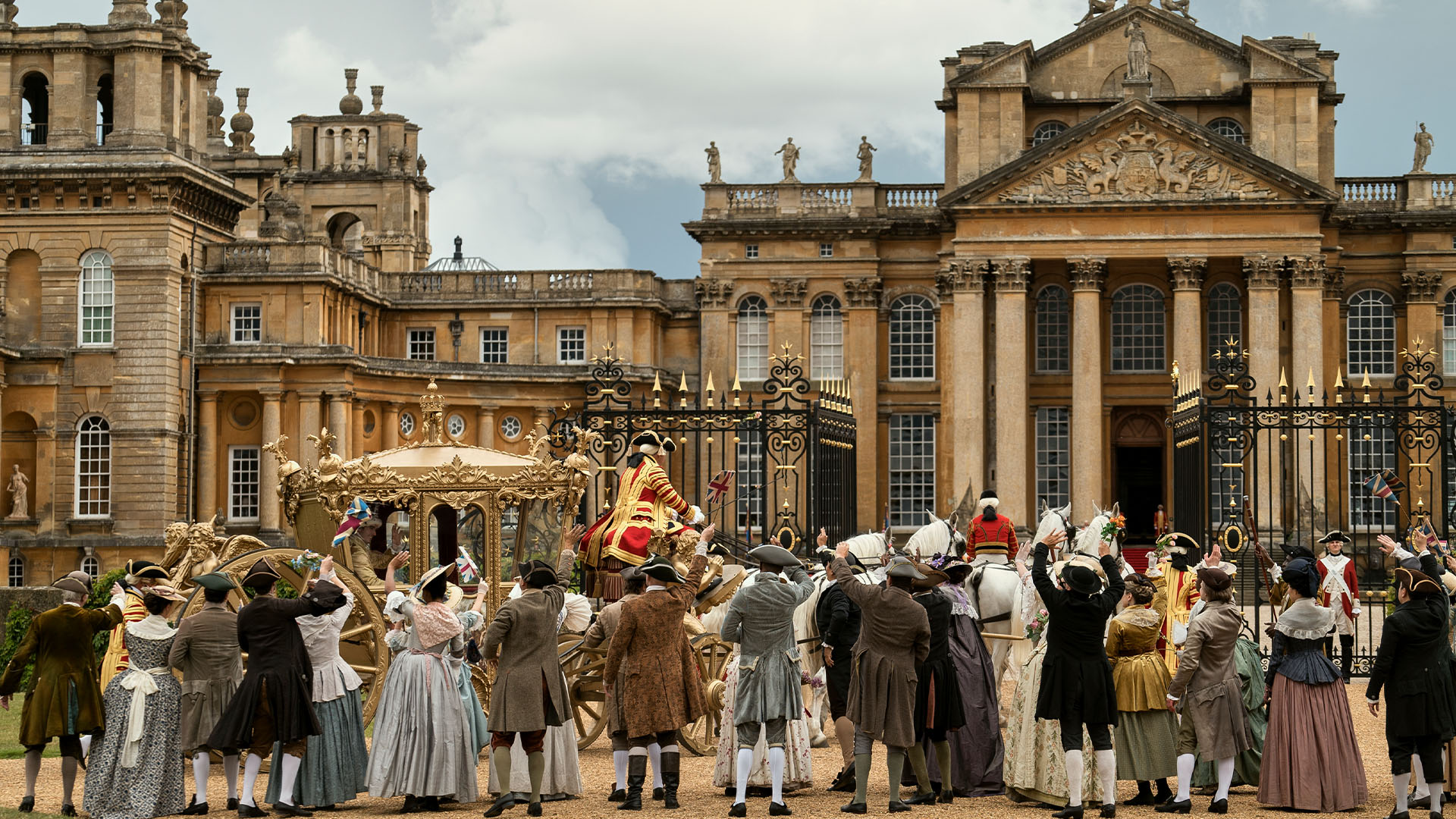
In a way, it’s a smart way to imagine how the sort of polite, insidious bigotry that infects more liberal circles may have manifested itself in an era of courts and bejewelled traditions. On the other hand, it’s so detached from even our own world—where a hasty assigning of titles would hardly have helped ease Meghan Markle into royal life—that it does make you wonder why Queen Charlotte felt the need to tackle racism so directly in the first place. “It is not a history lesson—it is fiction inspired by fact. All liberties taken by the author are quite intentional. Enjoy,” the show’s narrator (Julie Andrews) intones before a single frame has passed our eyes. That’s entirely fair. What Queen Charlotte doesn’t quite seem to have decided is how exactly the fiction should improve upon the fact.



